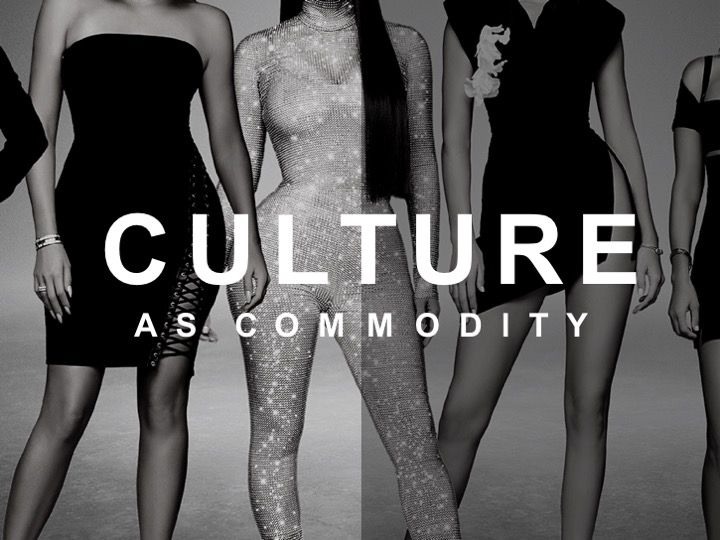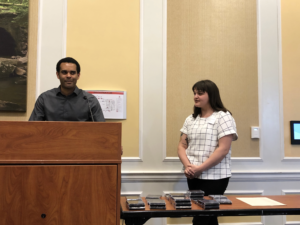Senior dual communication and sociology major Drue Stinnett used her last semester of college as an opportunity to take on a topic that intrigued her – “blackfishing.”
“Basically, white women are altering their bodies through cosmetic procedures, surgery, certain workouts, tanning, etc. to the point of looking black or biracial. This is obviously problematic for lot of reasons,” said Stinnett, defining the term. “Essentially, blackfishing is modern day blackface,” she explained.
A simple Google search brings up a series of results with articles ranging from ABC News, the BBC, Teen Vogue, and news sites from the United Kingdom, all joining the discussion about white influencers “blackfishing.” According to Stinnett, the term became viral last fall.
The topic became of interest to Stinnett after witnessing the topic for herself through viral photos of influencer Emma Hallberg on social media, who has been accused of blackfishing. Upon seeing it, Stinnett wondered whether or not the Kardashians have a role in popularizing it.
The idea of doing a project about the topic as an independent class started as a joke. After class one day, Stinnett approached her sociology professor Dr. Munene Mwaniki to discuss the concept of blackfishing, and made a comment about wishing she could do an independent study on the Kardashian family and their role in intersectional beauty standards.
Dr. Mwaniki, a sociology professor with an expertise in race and racism, offered to be her advisor for the project. He challenged her to look at how blackfishing is related to blackface and cultural appropriation.
Stinnett liked the idea of being able to essentially design her own course, holding the ultimate responsibility for being self-motivated, finding her own sources and material, and completing the project on less rigid deadlines than a normal course. Mwaniki believes that this type of project helps students engage in academic material in a new way.
“Doing your own research helps you better understand a topic – how and why a given problem came about or persists. It helps you as a writer as you’re reading more and figuring out how to discuss an issue, and it helps you understand what good research is since you’ve gone through that process,” said Mwaniki in an email response.

Presentation Slide provided by Drue Stinnett.
In January 2019, the spring semester began, and so did her research project “Culture as Commodity: an Analysis of Blackfishing and the Kardashians.” The project focuses on the Kardashian-Jenner impact on intersectional beauty standards and cultural appropriation.
In order to research her question of the Kardashian-Jenner’s impact on, or involvement with, blackfishing, she read a lot of work by bell hooks and Patricia Hill Collins. She also spent time watching episodes of the television series “Keeping Up with the Kardashians,” (KUWTK) which is a reality television series that captures the personal and professional lives of the Kardashian-Jenner family. Stinnett notes that the television show has always been a sort of guilty pleasure for her, so it was interesting to look at it from a more critical perspective and think about the content differently.
Off hand, studying the Kardashian-Jenners’ does not seem very academic. However, through discussion with peers and mentors, in addition to her recent presentation as a part of WCU’s Graduate Research Symposium (one of 8 undergraduates at the event), Stinnett has noticed an interest in her topic by those who have heard her discuss the concept.
Stinnett believes that her research shed a light on “intersectional feminism and the relationship between traditional feminism and the white patriarchy.” She hopes that her findings can empower women to embrace their own beauty and help others understand the impacts of the media they consume. According to her, the problem with the “Kardashian aesthetic” is that white women are taking pieces of black beauty that have been historically used to oppress or hypersexualize black women.
“When black women embraced these aesthetics in previous decades, they were marginalized, but as soon as a white woman wears the same hairstyle or has similar physical features, it’s the latest trend,” said Stinnett.
Dr. Mwaniki believes that Drue’s research has the potential to be published.
“If it were, I think it would be a great contribution to the literature on white supremacy and how it creates the exotic ‘Other’ in order to exploit them in different ways,” wrote Mwaniki in an email response.

Drue Stinnett receiving the Dean’s Outstanding Scholar Award for the Department of Sociology. Photo provided by Rylee Roquemore.
In recognition of her academic achievement, including her work on her research project, on April 1, 2019, Stinnett received the Dean’s Outstanding Scholar Award for the Department of Sociology, which recognizes students with outstanding academic records.


